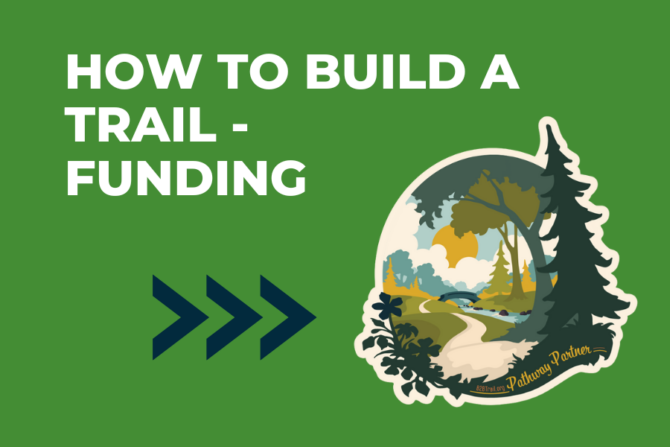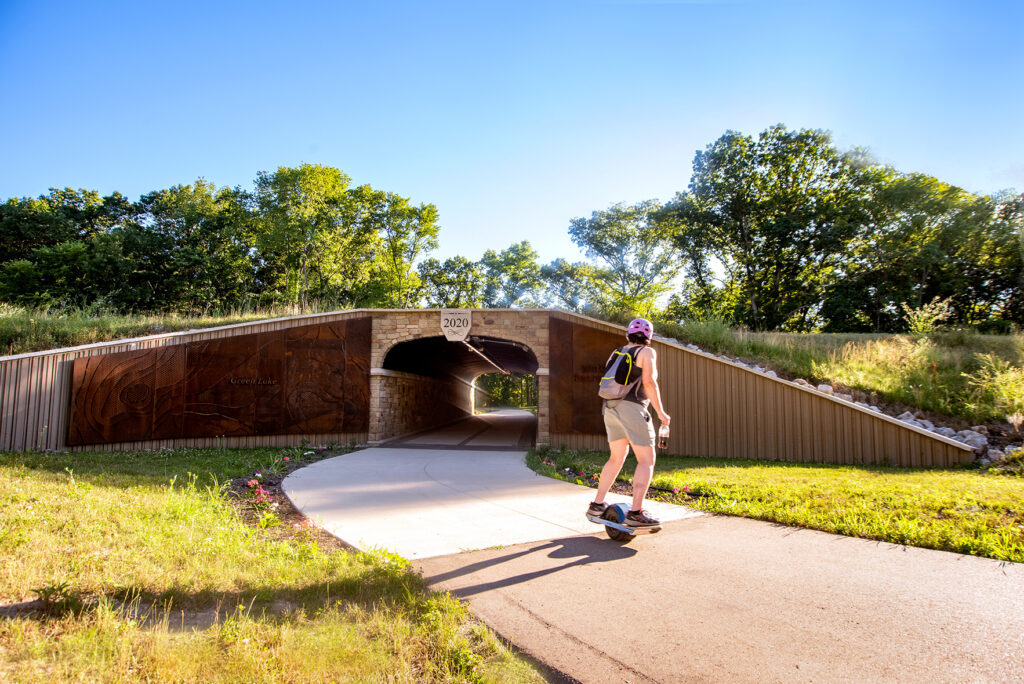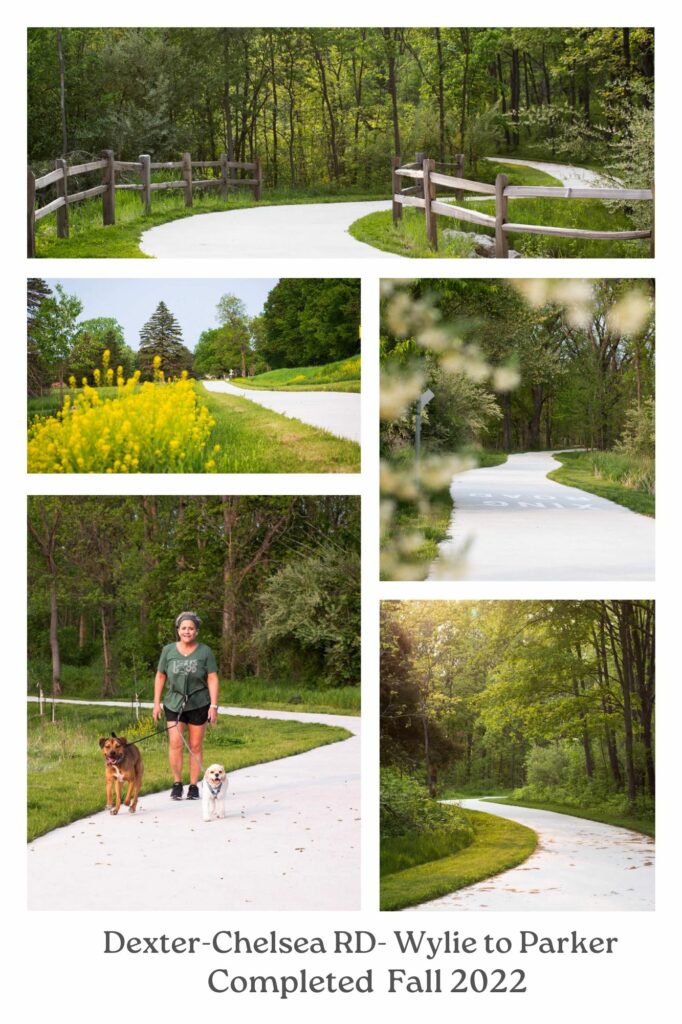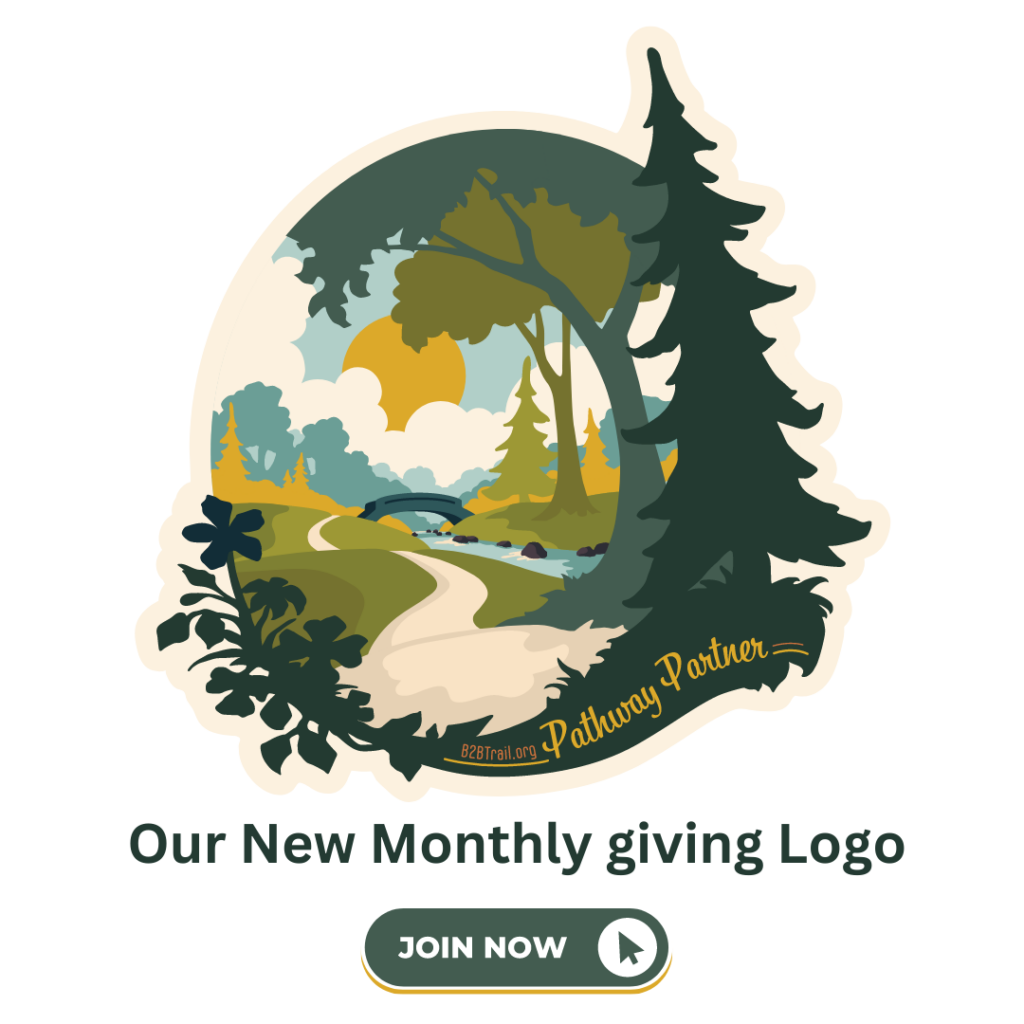How to Build a Trail – Funding

For the past six years, the B2B Trail has been funded through a successful public-private partnership between the Washtenaw County Parks and Recreation Commission (WCPARC), the primary public agency behind the trail, and the Huron Waterloo Pathways Initiative (HWPI), a 501(c)(3) nonprofit organization. This unique funding model allows for WCPARC to put Washtenaw County millage dollars and state and federal grant funding towards the development of the B2B Trail. At the same time, HWPI works to raise private dollars through major donor gifts, community-based fundraising efforts, and foundation grants. In combination, the two partners raise money significantly faster than the traditional model of only using public dollars for public projects. The expedited fundraising, in turn, means faster construction of the trail, with nearly 3 times more trail built per year on average than before the partnership was formed.

While HWPI has significantly increased the pace of fundraising – and thus construction – of the B2B Trail, public dollars still make up roughly two-thirds of all dollars spent on trail development. About one-third of overall funds come from residents of Washtenaw County, who pay the Washtenaw County Parks Millage that goes towards county parks and trails projects, including the B2B Trail, and the Washtenaw County Road Millage, twenty percent of which is dedicated to non-motorized transportation, such as trails. Combined, these taxpayer dollars amount to over $2,000,000 per year on the B2B Trail.
Of course, this money is only available if the County Parks Millage and County Road Millage are passed by voters every four years. While we are lucky enough to live in a community that values outdoor recreation and green space, every fourth election cycle is critical to ensure these dollars remain available. Both millages are next on the ballot in 2024.
The other major source of public dollars – about one-third of overall B2B Trail funds – is made up of various state and federal grants. These include, among others, various Michigan Department of Natural Resources (MDNR) grants, Transportation Alternatives Program (TAP) grants from the Michigan Department of Transportation (MDOT), and, more recently, Federal Coronavirus Local Fiscal Recovery Funds (CLFRF) that emerged from the 2021 American Rescue Plan Act (ARPA). Only public agencies – such as counties, cities, and townships – can apply for such grants, meaning that WCPARC as well as various cities along the B2B Trail submit applications for these public grants, often drafted with or supported by HWPI.

Private funding from HWPI provides the remaining one-third of the funds to build the B2B Trail. As mentioned above, private funding adds a unique element to trail development and expedites dollars raised and miles of trail built.
Private funding breaks down into three major categories – 1) major donors; 2) various community-based and online fundraising strategies, and 3) grants from private foundations. All sources of private funding are critical to the work of HWPI. The single largest contributor to the B2B Trail is the Ralph C. Wilson, Jr. Foundation, which has granted two grants to HWPI in the past five years for B2B Trail development totaling over $4M. Their amazing partnership and vision for non-motorized regional connectivity throughout Southeast Michigan is one of the significant reasons private dollars have had such an impact on the B2B Trail. Major individual donors are another reason. Since its inception, HWPI has received gifts from nearly 3,000 individual donors, with gifts ranging from 1$ to $1M. The generosity of individual residents of Washtenaw County who have donated to the trail is matched only by our community’s enthusiasm for trails, nature, environmental stewardship, and outdoor recreation. Lastly, HWPI operates numerous community-level fundraising efforts – such as beer tents and sponsorships at local running races – and online fundraising platforms, such as crowdfunding campaigns for specific B2B Trail projects and monthly giving.

Notably, nearly all of the funding for the B2B Trail – both public and private – goes directly toward trail development. This includes feasibility studies, design and construction planning and engineering, permit applications, trail construction, and trail-adjacent projects, such as maps and wayfinding systems.
While fundraising for the B2B Trail takes a lot of work by many people, it is our hope that the entire community takes pride in our local trail, which is only possible thanks to the generosity of taxpayers and donors.
